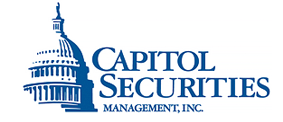By: Kent Engelke | Capitol Securities
The rally in mega cap tech sticks is poised to close a final chapter in the history of the dot-com bubble.
According to Bloomberg, after a 17-year hiatus, the S & P 500 Technology Index is close to rising above its March 2000 peak. This index, led by its five biggest companies which are up an average of 24% in 2017, has soared about 17% for the year. The five companies are Apple, Alphabet, Microsoft, Amazon and Facebook.
According to Bloomberg, the combined capitalization of the above 5 is just under $3 trillion and is 17% of GDP — the greatest share ever. These issues also comprise 33% of the NASDAQ’s value. Wow!!
Further referencing Bloomberg, these five companies’ capitalization would be ranked as the world’s fifth biggest economy.
In my view, the above data is incredible, directly supporting my assertions that the advance has been myopic. I believe the massive proliferation of capitalization driven ETFs and electronic based trading is a major reason for this incredible advance.
Historically, such a buying stampede ends ugly. In some regards, today is perhaps analogous to the railroad mania of the late 1800s. Will today’s era end in a similar manner?
Many times I have opined the economy is on the verge of greater than expected growth. What is required is tax and regulatory reform and increased monetary velocity. As evidenced by virtually every sentiment indicator, confidence is at the highest level in at least 10 years.
However, because of regulatory/tax strangling, monetary velocity or the turnover of money is virtually nonexistent. In fact, according to Bloomberg, monetary velocity is at the lowest level since 1959.
Wow! This data point is also incredible. What happens if monetary velocity accelerates and a portion of excess bank reserves are utilized in a more productive manner? As noted last week, there is a record amount of Treasury yields that have a negative real yield. If history is of any guide, it is not if a transition will occur, but rather as to when.
What will happen this week? Will political considerations continue to dominate the headlines? The economic calendar is comprised of manufacturing and housing statistics.
Last night the foreign markets were mixed. London was up 0.10%, Paris was down 0.11% and Frankfurt was down 0.11%. China was up 0.22%, Japan was down 0.07% and Hang Sang was up 0.86%.
The Dow should open nominally higher as oil is up about 3% on prospects that Saudi Arabia and Russia will continue production for another 9 months, 50% longer than expected. The 10-year is off 2/32 to yield 2.34%.
















